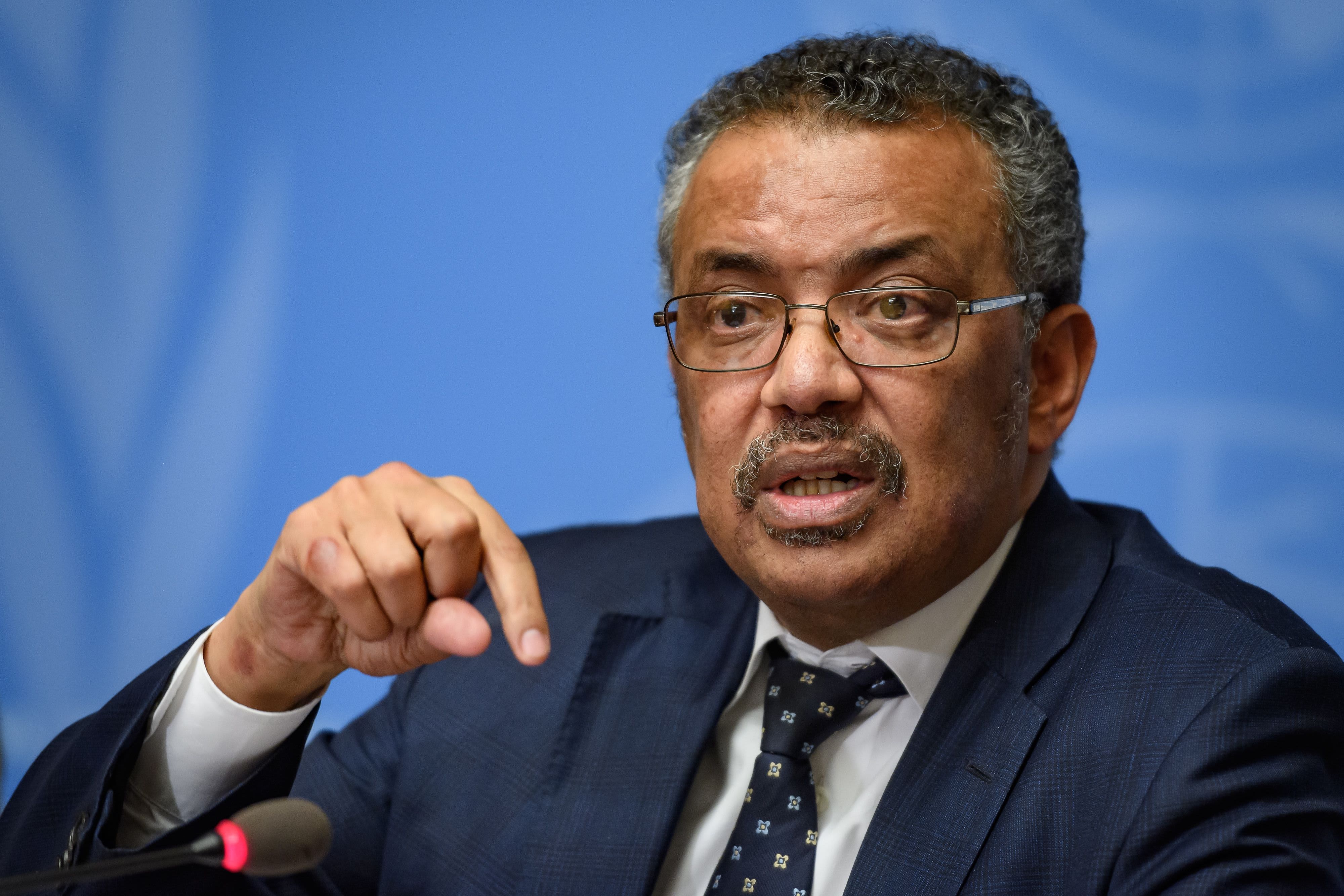
World Health Organization (WHO) Director-General Tedros Adhanom Ghebreyesus gestures during a press briefing on evolution of new coronavirus epidemic on January 29, 2020 in Geneva.
Fabrice Coffrini | AFP | Getty Images
WHO Director-General Tedros Adhanom Ghebreyesus warned on Monday that the world may be "dangerously" unprepared for the next pandemic as the flu-like coronavirus that emerged from China about a month ago spreads rapidly to new countries.
At an executive board meeting in Geneva, Tedros urged the World Health Organization's 196 member countries to "invest in preparedness," not "panic." He added that funding for outbreak preparedness in surrounding countries "has remained grossly inadequate" in the past.
"For too long, the world has operated on a cycle of panic and neglect," Tedros said, according to a transcript of his remarks. "We throw money at an outbreak, and when it's over, we forget about it and do nothing to prevent the next one."
"If we fail to prepare, we are preparing to fail," he added.
Tedros said more than $1 billion has been spent trying to stop the Ebola outbreak in the Democratic Republic of the Congo. By comparison, he added, just $18 million was spent on preparedness in Congo's neighbor Uganda before the virus crossed the border.
"This must be a lesson for the rest of the world," he said.
The plea from WHO's top official comes as the deadly coronavirus has now killed at least 362 people and sickened more than 17,400 worldwide, including patients in the U.S. and Europe.
The respiratory illness, which is capable of spreading through human-to-human contact, is not yet considered a pandemic. A pandemic is "an epidemic occurring worldwide, or over a very wide area, crossing international boundaries and usually affecting a large number of people," according to WHO. While the new virus has spread to almost two dozen countries, the majority of the cases remain in mainland China.
Nevertheless, many global health experts expect the virus will become a pandemic. Since emerging about a month ago in Wuhan, China, the coronavirus has infected more people than the 2003 SARS epidemic, which sickened roughly 8,100 people across the globe over nine months. As of Monday, there are nearly 200 cases in at least 23 countries, outside of China, a handful of which have been transmitted from human contact within those countries.
On Thursday, WHO declared the virus a global health emergency after declining to do so at two previous meetings.
Tedros said the "continued increase in cases and the evidence of human-to-human transmission outside of China" were "most deeply disturbing."
"Over the past few weeks we have witnessed the emergence of a previously unknown pathogen that has escalated into an unprecedented outbreak," Tedros said during a news conference at the organization's Geneva headquarters last week. "We must act together now to limit the spread."
In the U.S., the Trump administration declared the novel coronavirus a public health emergency, and announced that certain foreign nationals deemed to pose a risk of transmitting the disease will temporarily be denied entry to the United States. Some returning American citizens potentially at risk will be quarantined. Public health officials say they are trying to contain the infection, which has sickened 11 U.S. citizens, before it spreads too quickly
Read More
